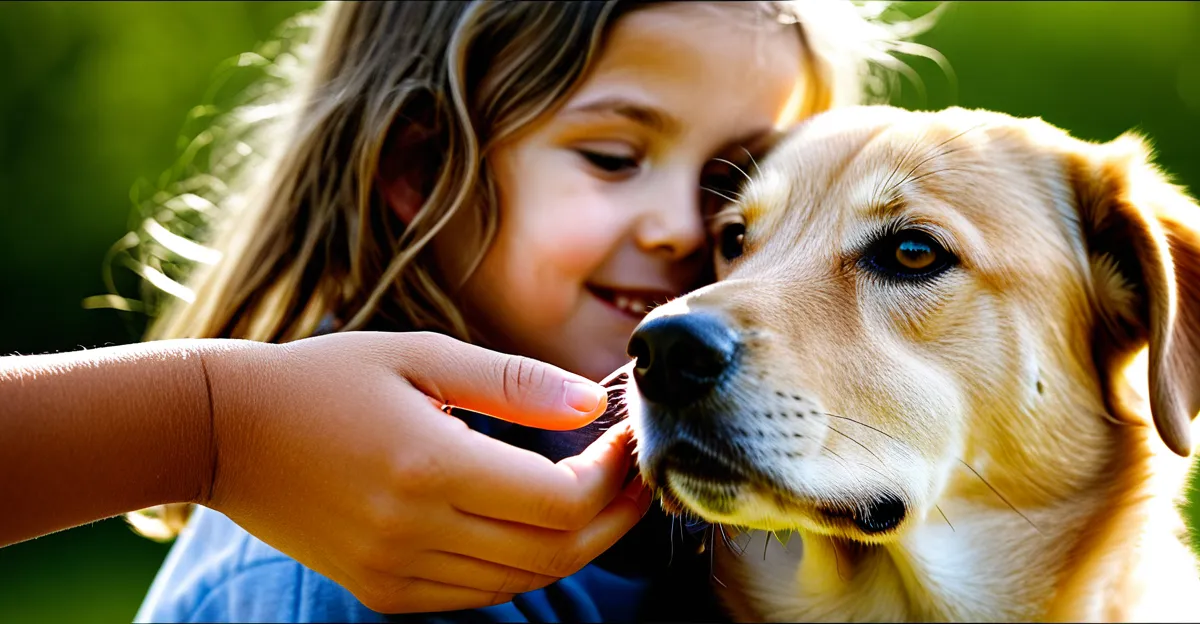Positive Effects of Pet Ownership on Children’s Development
Pet ownership benefits extend well beyond companionship, offering a rich, multidimensional impact on child development. Children with pets often exhibit marked improvements in emotional stability, social interaction, cognitive growth, and physical health. The impact of pets on kids can be profound, fostering key developmental skills that are crucial during formative years.
Emotionally, pets teach children empathy and compassion. The daily care and attention required for pet ownership cultivate responsibility and emotional intelligence. This nurtures deeper understanding of others’ feelings, which supports emotional well-being. In social contexts, the presence of pets encourages positive communication skills, as children learn to express concerns, negotiate care duties, and resolve conflicts related to their pets. Such interactions promote cooperation and strengthen peer relationships.
Also to see : How Can You Enhance Your Pet’s Health with Regular Vet Visits?
Cognitive development also benefits, as engaging with pets stimulates curiosity and problem-solving. Children learn routines, time management, and critical thinking through consistent pet care, enhancing executive function. Physically, pet-related activities motivate children to be more active, positively affecting motor coordination and overall health.
These advantages highlight how pet ownership benefits various facets of a child’s growth, making pets valuable allies in holistic child development.
Also to read : How Can You Prepare Your Home for the Arrival of a New Pet in the UK?
Cognitive and Educational Benefits
Pet ownership significantly enhances cognitive development in children by actively engaging their curiosity and encouraging continuous learning. Caring for a pet involves daily tasks that require planning, problem-solving, and memory, which improve essential executive functions such as organization and time management. Children learn to follow routines—feeding, walking, and grooming—providing structured, real-life applications of responsibility that reinforce cognitive skills.
Educational benefits extend beyond practical care. Interaction with pets stimulates exploration as children ask questions, seek information about animal behavior, and experiment with care techniques, fostering natural curiosity. This dynamic learning environment supports critical thinking and attention to detail. Additionally, pets can encourage reading skills; many children practice reading aloud to pets, motivated by the nonjudgmental companion, which helps improve literacy and confidence.
Overall, the impact of pets on kids’ cognitive development is multi-layered, combining routine and responsibility with creative learning opportunities. These experiences complement traditional education by nurturing problem-solving abilities and practical knowledge that benefit children well beyond pet care. Recognizing this can motivate families to incorporate pets thoughtfully into child development plans.
Physical Activity and Health
Pet ownership benefits children by encouraging a more active lifestyle, which directly supports their physical development. Regular interaction with pets often involves activities such as walking dogs, playing catch, or running around, which not only promote movement but also improve physical coordination and motor skills. This active engagement helps children build strength, stamina, and balance in enjoyable ways.
How do pets influence health benefits for children? Pets serve as motivating companions who naturally prompt kids to be outdoors and physically engaged. This consistent activity can result in better cardiovascular health, muscle tone, and weight management. Additionally, children who grow up with pets may develop stronger immune systems due to early exposure to certain allergens and microbes, which can reduce the risk of allergies and asthma over time.
Moreover, pet-related physical activities create routines that support overall health. The responsibility of caring for a pet encourages children to integrate exercise into daily habits. This helps build lifelong behaviors centered on health and wellness. Thus, the impact of pets on kids’ physical health is multifaceted, combining movement, coordination, and long-term disease prevention. Through these benefits, pets play an important role in promoting well-rounded child development.

